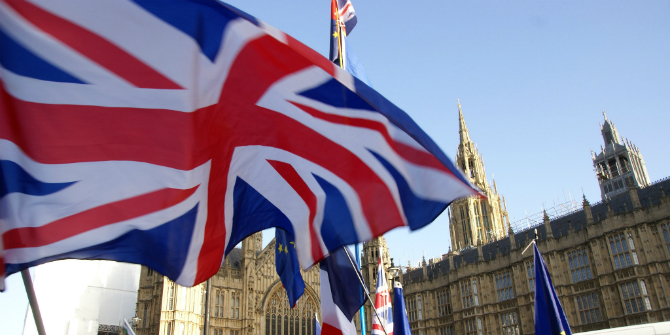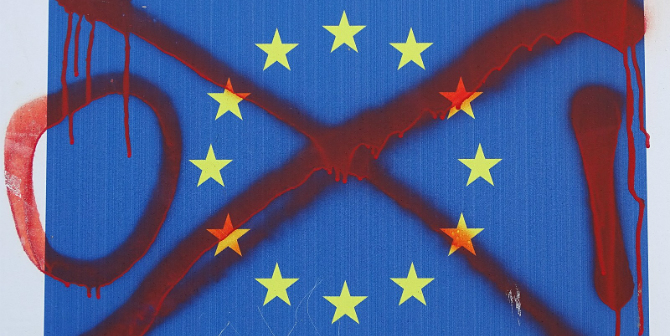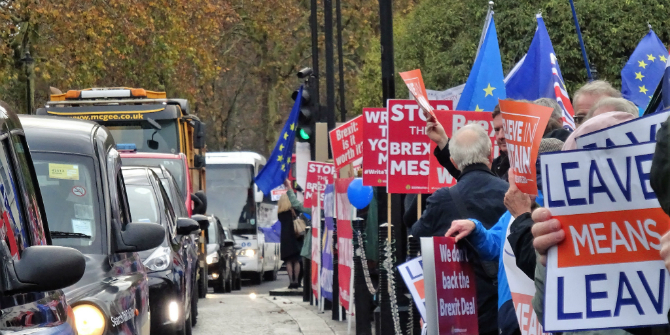Britain leaves the EU. That is not in doubt. But the terms of the future relationship remain to be decided. With Labour and Liberal Democrats unable to form any coherent opposition can business emerge as the opposition to a hard, amputational Brexit, asks Denis MacShane?
The UK leaves the EU Treaty today. However, January 31 is not Brexit. Leaving the EU Treaty does not “get Brexit done”. It merely opens the door to more negotiations about what kind of Brexit Boris Johnson wants. Sometime in the spring as soon as the EU27 governments have given a negotiating mandate to Brussels the real Brexit negotiations will begin. We have no idea how long they will take and how Britain will handle them.
Pascal Lamy, a man who knows more about both EU negotiations and global trade negotiations than probably any sentient human being likens Brexit to extracting an egg from an omelette. There are for example more than 600 international trade treaties that the UK is signed up to by virtue of being an EU member. All of these will have to be renegotiated and in some cases the country the EU signed a deal with years ago will now have different priorities and different demands to make to Britain.
This uncertainty will continue. EU Commission president Ursula von der Leyen states: “If there is no freedom of movement of people, of course, there can be no free movement of goods and services and capital,” she told a news conference in Croatia, which has just taken up the rotating EU presidency. Ending freedom of movement, however, was the constant demand by the anti-EU and pro-Brexit forces in the years leading up to the referendum. Many of the new Tory MPs who have just entered the Commons have cut their political teeth on anti-immigrant ideology. But the EU 27 are making it clear that if the UK prioritises setting up a cumbersome new immigration bureaucracy which discriminates against EU citizens then the chances of British based firms keeping their current access to the 450 million EU consumers are slim to non-existent.
The EU Commission had published the first outline of its negotiating mandate. To put it mildly, it is very strict. As the Conclusions note:
-
A free trade agreement requires robust horizontal level playing field commitments and additional commitments in relevant sectors; Clear and ambitious floor provided by common standards and ambition to improve over time; Non-lowering of higher domestic labour and environmental standards in order to encourage trade and investment.
And this is just for an agreement covering manufactured goods, not the output of 80 % of the UK economy which is services. Data shows that in 2016 almost one in every five workers in the City of London originated from a European country – the highest figure since records began. Each and every one of them can be sent at a moment’s notice to anywhere in Europe to sell financial products, help secure financing for a firm, offer specific insurance produced, research investment fund investments, pitch to get a contract for a consultancy, accountancy, or legal firm working in City.

In a year’s time, their British colleagues will be citizens of a third country and each EU member state has different national laws and rules that apply to 3rd country citizens. Going to Madrid for a meeting will be classified as work and permission may have to be sought to work in Spain for a third-country national from Britain. There are 350,000 EU passports issued to firms and individuals in the City of London which all the holder to do financial services business anywhere in the EU27’s cities and regions. They are issued on the basis of so-called “equivalence” that the supervisory regimes in London are competent and enforced and that the UK abides by the same rules as other EU member states.
They are issued entirely at the discretion of the European Commission and equivalence can and has been lifted unilaterally by the Commission, notably most recently in the case of the Swiss stock exchange over Swiss foot-dragging about agreement a general framework agreement between Brussels and Bern. Luis de Guindos, the VP of the ECB and former Chair of the Eurogroup has said that City firms seeking to continue to have access to EU markets by setting up branch offices “must move enough staff and assets to the European Union by their respective deadlines if they are to retain access to the single market.” Nameplate branch offices won’t do. Men and women and support staff and offices and materiel must leave London he made clear.
In fact, there are a number of very strong statements now from national political leaders like the Croatia prime minister, Andrej Plenković, who chairs the EU Council’s rotating presidency in the first half od 2020 or the new Foreign Minister of Spain, Arancha Gonzàlez, about how there is no chance of concluding a comprehensive deal as demanded by Mr Johnson this year. Señora Gonzalez is interesting as she was Chief of Staff to Pascal Lamy for eight years when he was running the WTO so is unlikely to believe any of the nonsense from London Brexit fans who say the UK can just walk out and trade on WTO terms.
For centuries Britain has negotiated international treaties and sought to place its commercial and other relationships with other countries on a legal footing. In the end, the EU is not a political so much as a legal community. Mr Johnson is above all a supreme practitioner of politics, not much interested in the rules and laws that emerge from political processes to turn demands for change into a legally enforceable reality. He is master of all he surveys in England and has a majority to do his bidding in the Commons. The Labour and Liberal Democrat parties have no leaders, no clear ideas and will not function as an opposition for some time to come. So who is there to tell Mr Johnson that perhaps not everything he proposes can work and will indeed be damaging to the City and the rest of the UK economy?
Since the 2016 plebiscite, British business has been keeping its head under the duvet unwilling to challenge first Theresa May’s and now Boris Johnson’s insistence on a Brexit that offered the maximum amputation from Europe, not a moderate and balanced approach keeping economic and other trade links as in Norway or Switzerland. The two prime ministers opted for a Brexit that would please Nigel Farage more than a Brexit that would be acceptable to Ken Clarke. Business went along with this and, for the most part, refused to join the majority of the nation that saw Brexit as bad for Britain and marched in their millions in the streets of London for a new referendum.
Two years ago I recall discussing this with Dr Adam Marshall, the head of the British Chambers of Commerce, and as he rightly pointed out to me the individual Chambers of Commerce in the UK had many members who supported Brexit and sincerely believed that being in the EU was negative for the UK. And of course, no business wanted to give any aid or comfort to anti-Conservative political forces led by Jeremy Corbyn and his team of statist socialists. But Corbyn is over and Labour is out for some time. So can business get out from under the duvet and start to speak out more clearly?
Britain leaves the EU. That is not in doubt. But the terms on which Britain leaves remain to be decided and after four years of keeping quiet perhaps British businesses can begin to make themselves heard.
This post represents the views of the author and not those of the Brexit blog, nor LSE. Image by ChiralJon, Some rights reserved.





